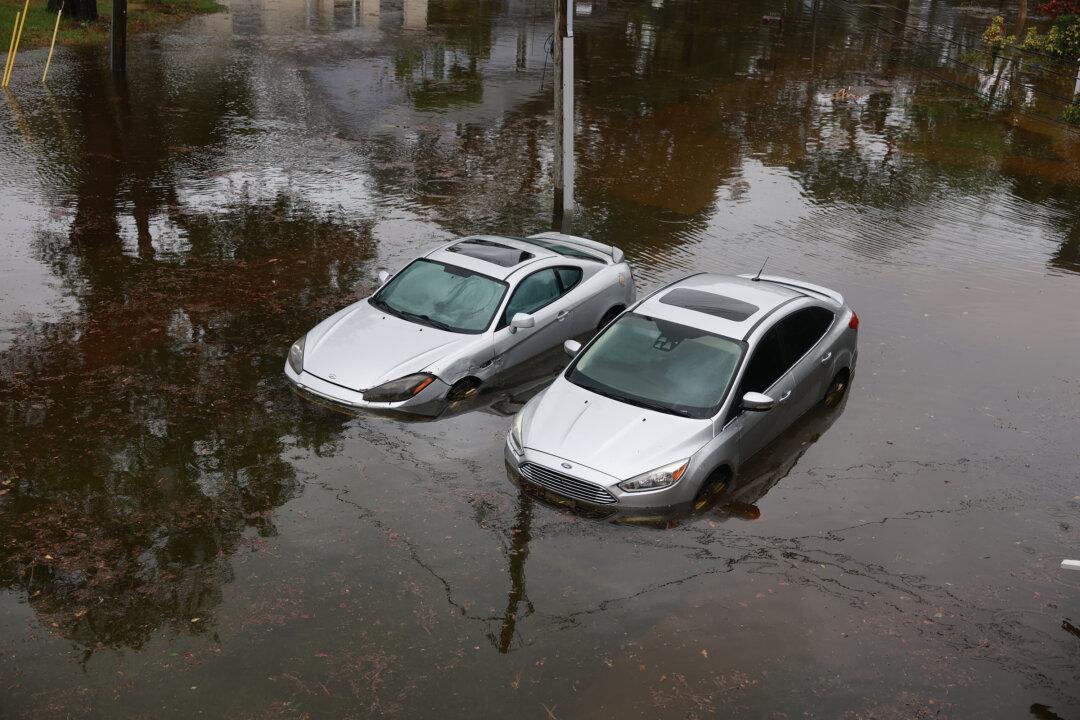Hurricane Idalia and subsequent floods have created an electric vehicle fire risk in Florida as batteries exposed to saltwater become susceptible to combustion, based on statements from one of the fire departments in the state.
“WARNING. If you own a hybrid or electric vehicle that has come into contact with saltwater due to recent flooding within the last 24 hours, it is crucial to relocate the vehicle from your garage without delay. Saltwater exposure can trigger combustion in lithium-ion batteries. If possible, transfer your vehicle to higher ground,” Palm Harbor Fire Rescue (PHFR), Florida, said in an Aug. 30 Facebook post.





